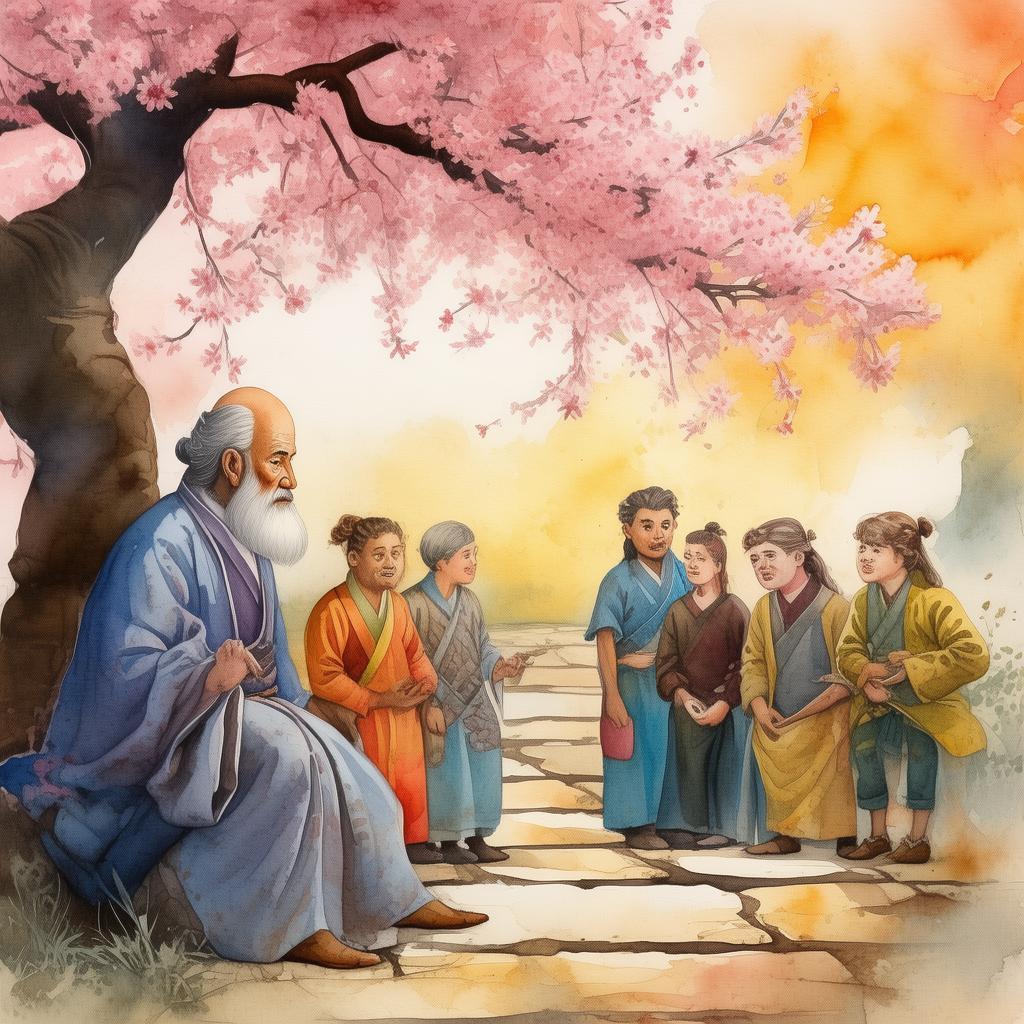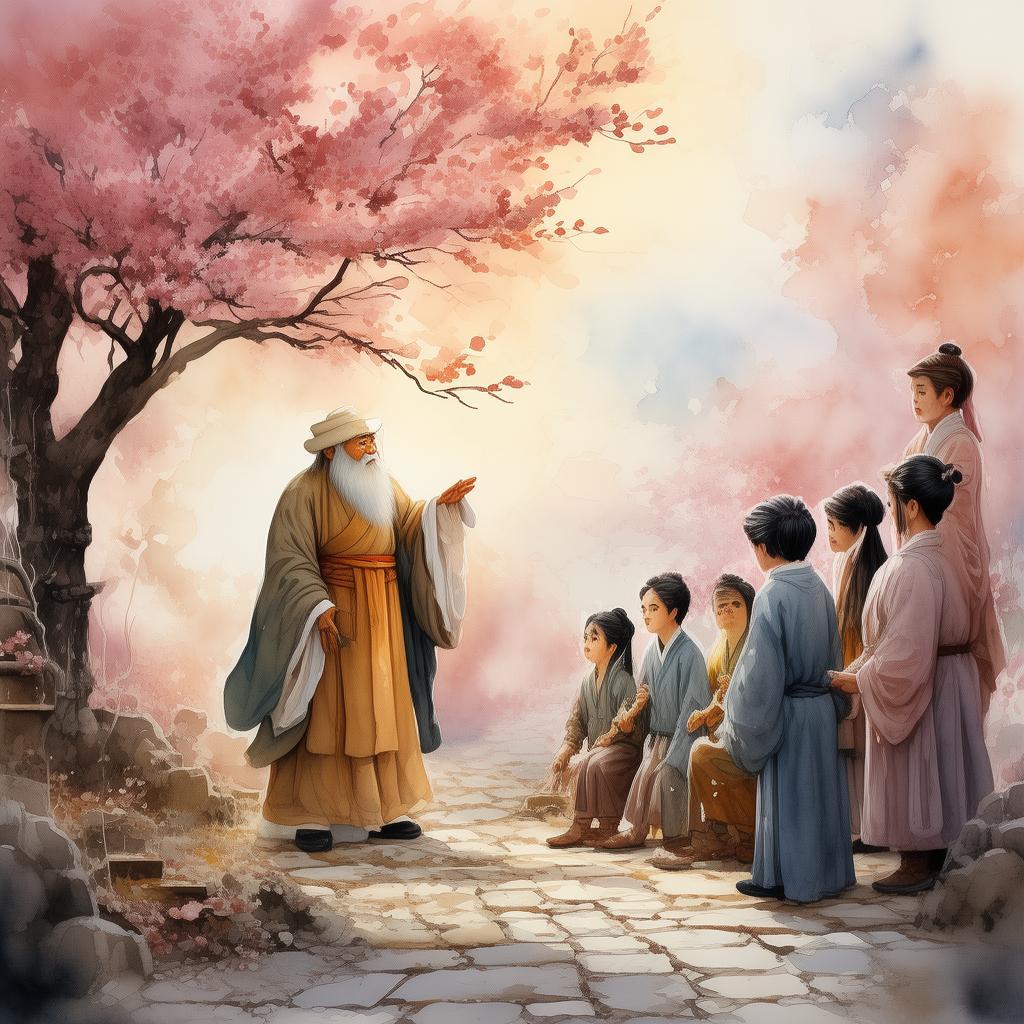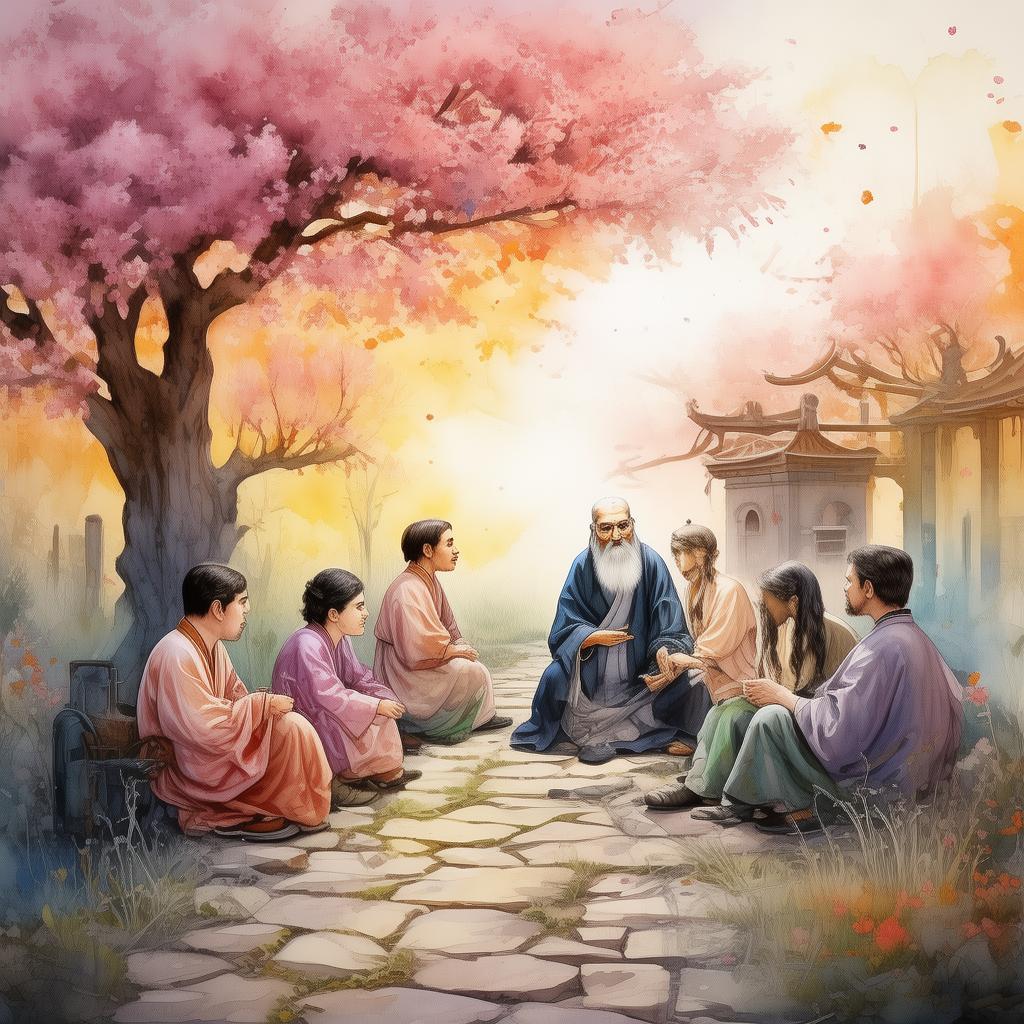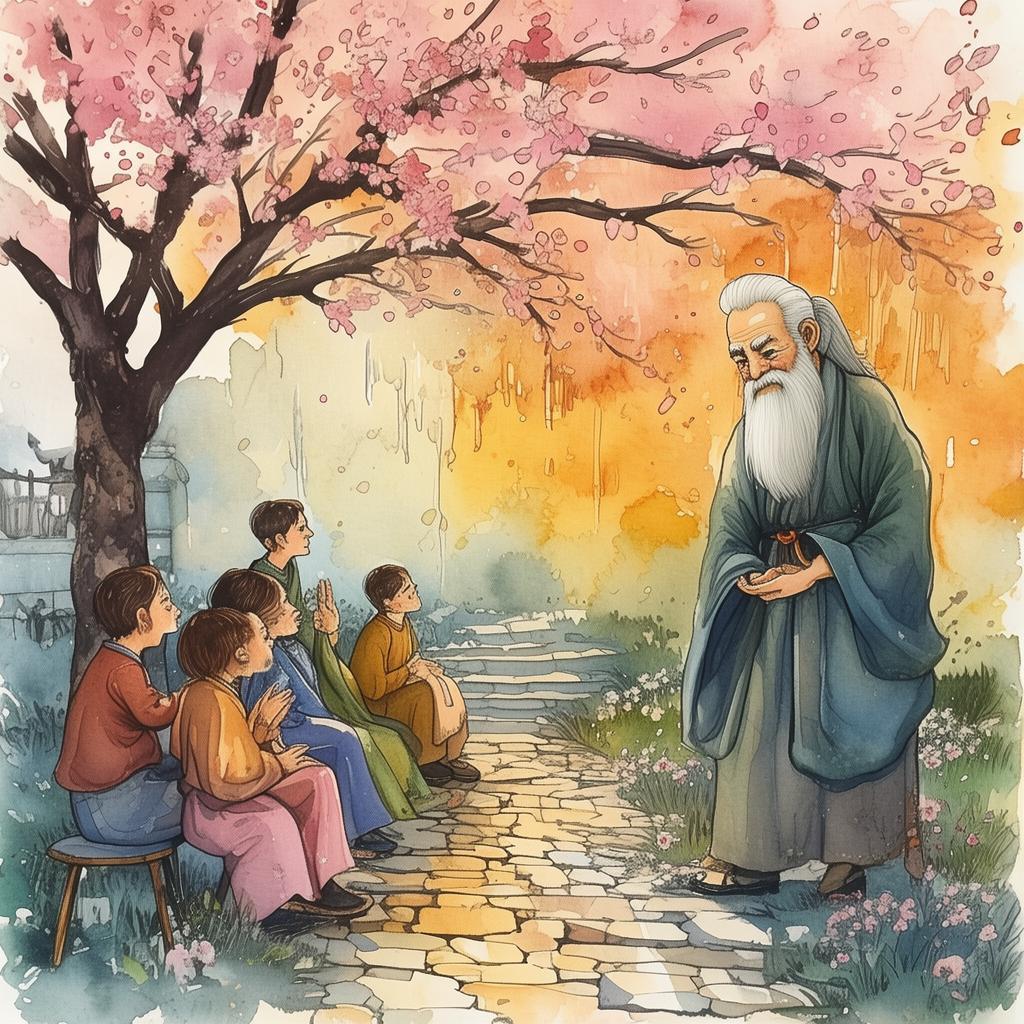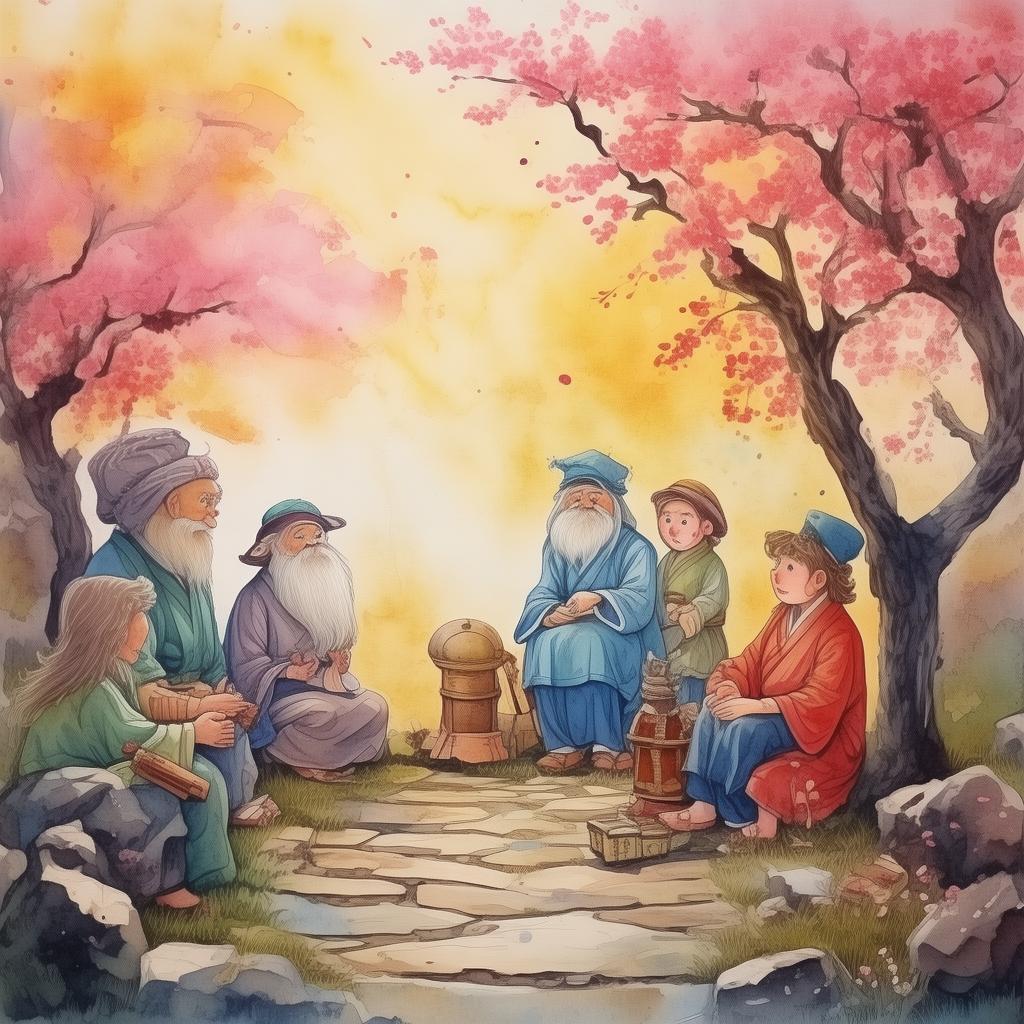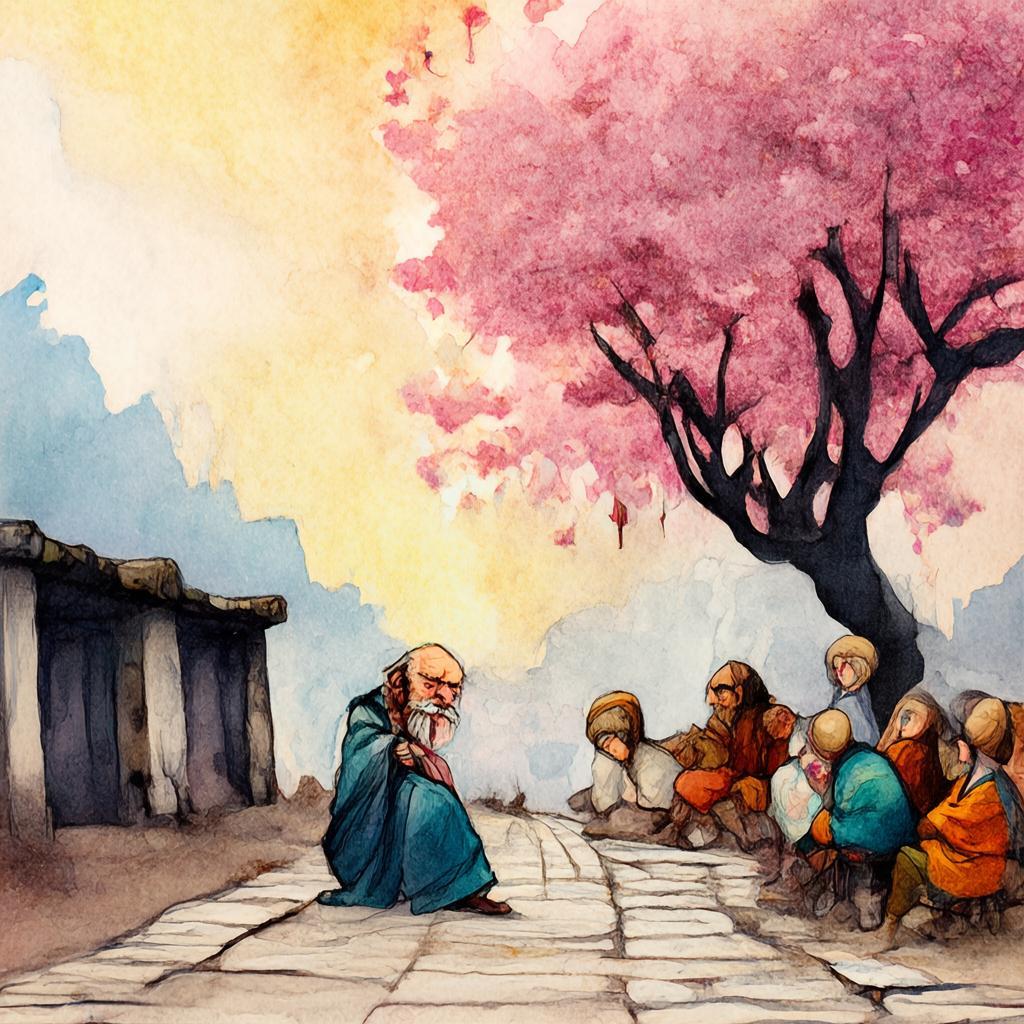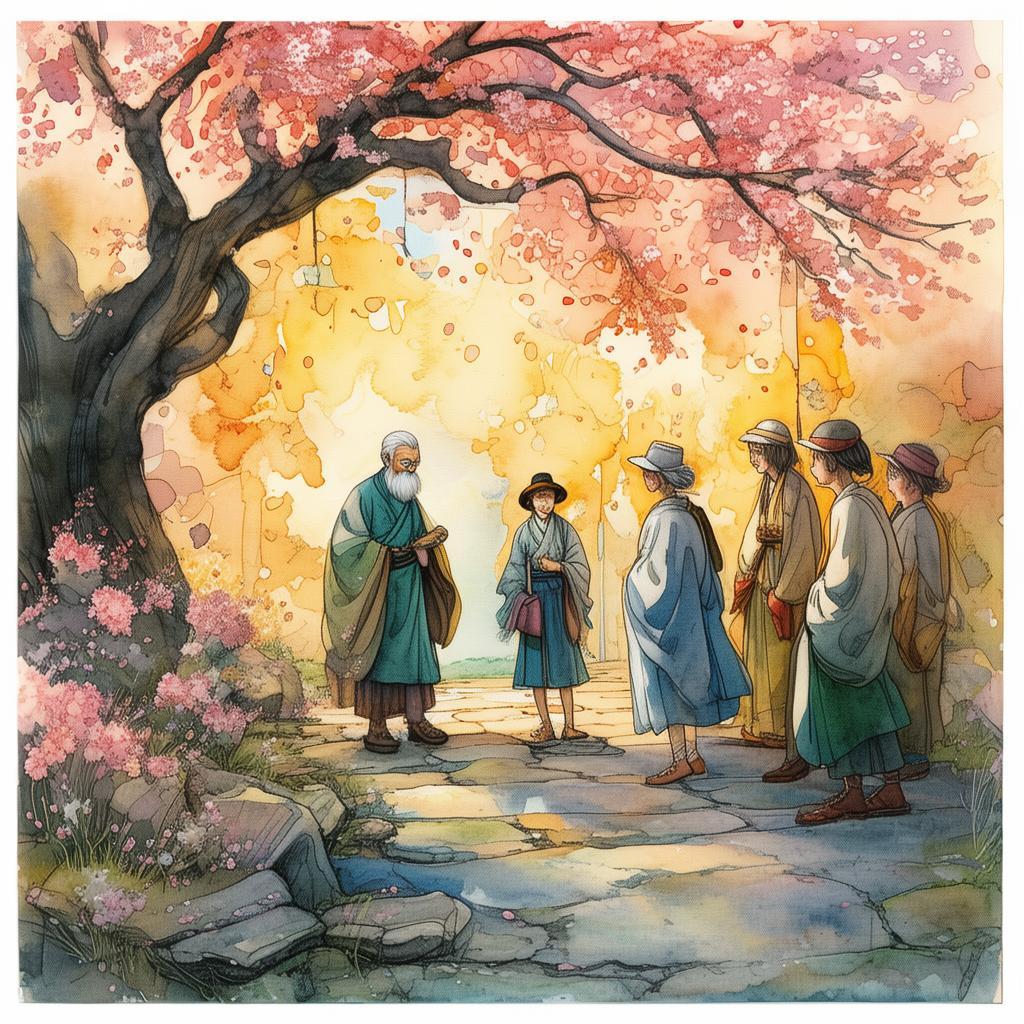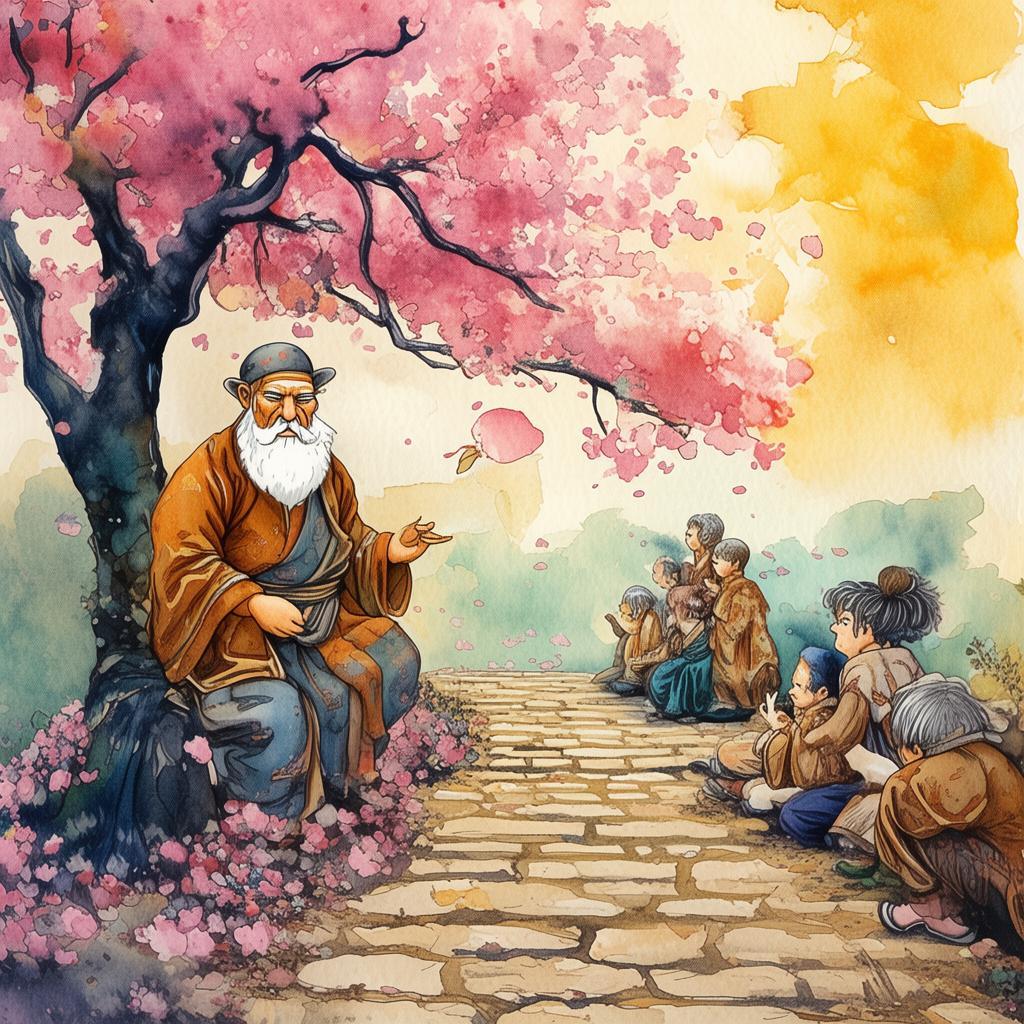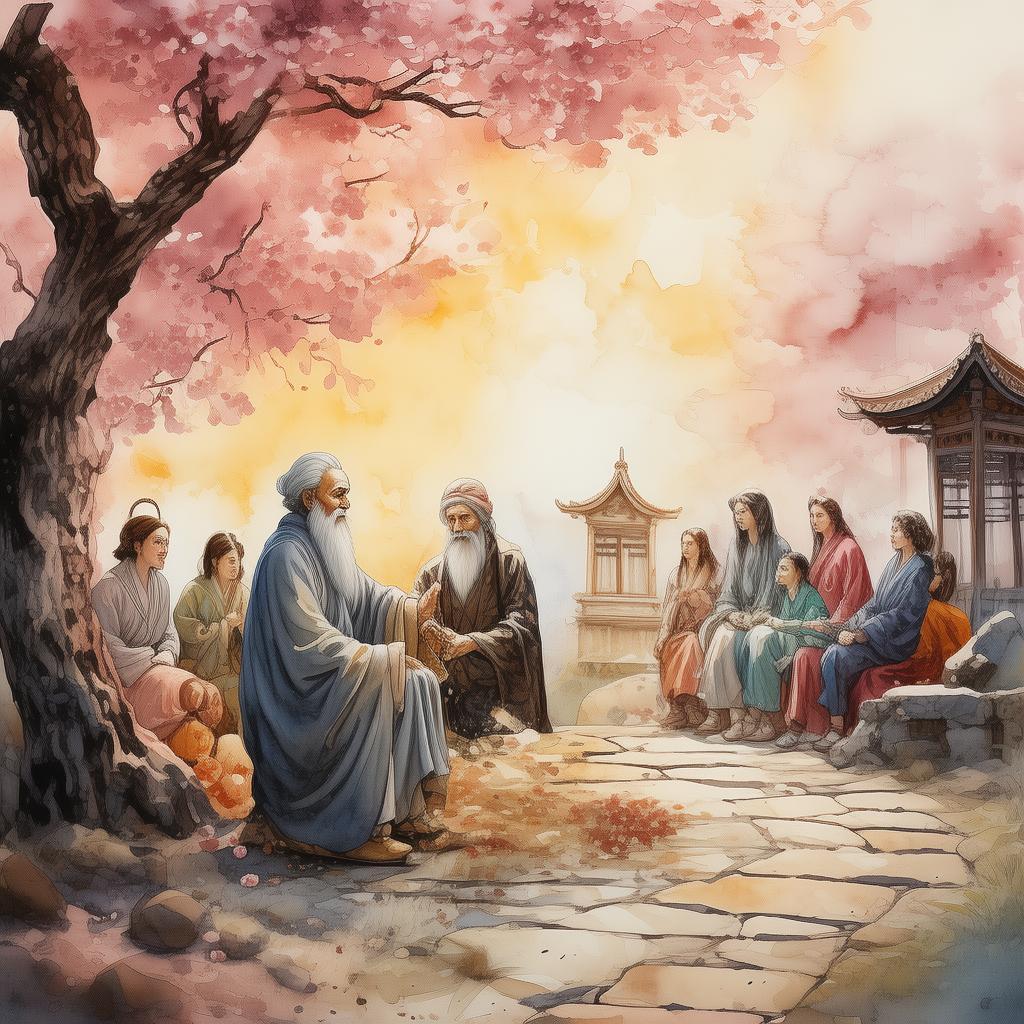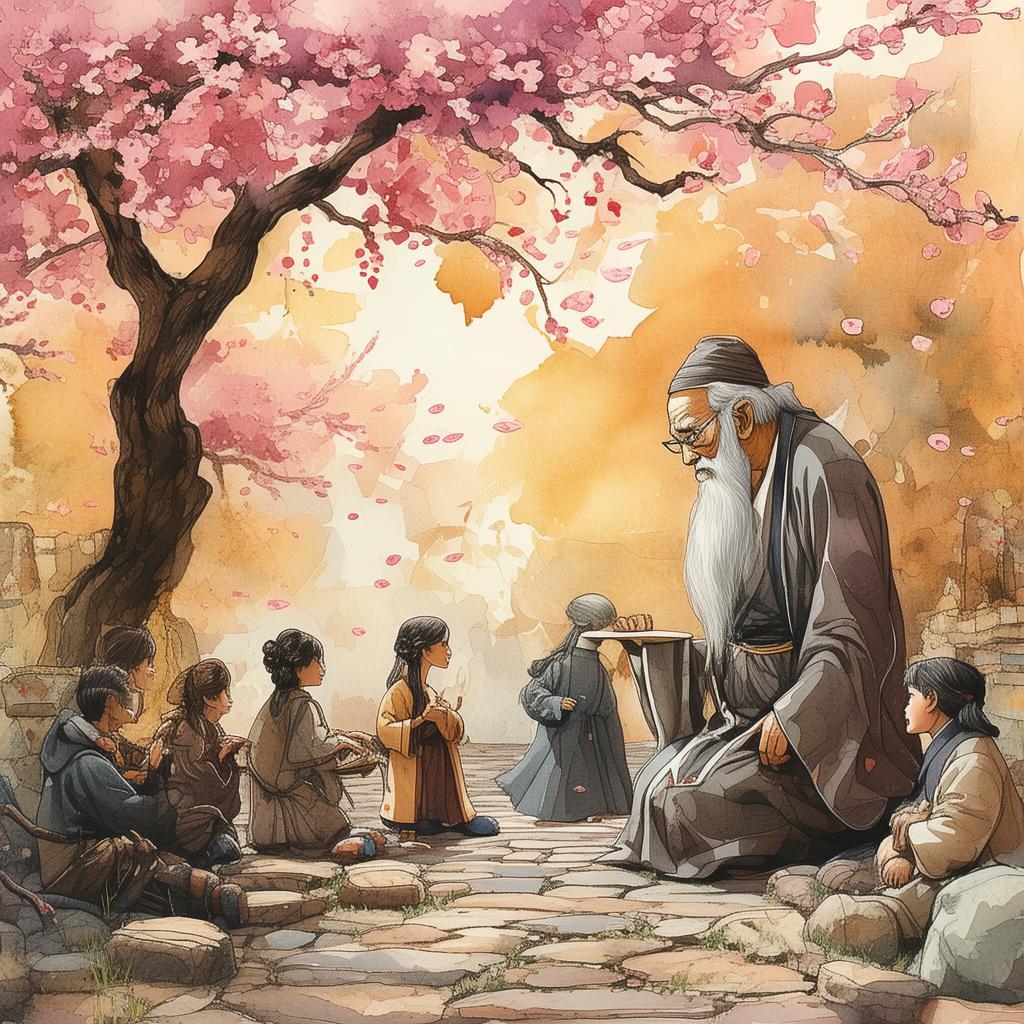The Miraculous Reversal: The Qing Emperor's Edict
In the heart of the majestic Forbidden City, amidst the splendor of the Qing Dynasty, there was a story that was whispered from the walls to the eaves, a tale of a single edict that reshaped the course of history. The edict, a mere piece of paper adorned with imperial seal and ink, was said to possess mystical powers, capable of altering the fates of those who wielded it wisely or carelessly.
The story begins with a young official named Li Qing, an ambitious man with a heart as sharp as his mind. He was a favored courtier of the Emperor, whose favor was a golden ticket to wealth and power. Li Qing, though, had his eyes on a higher prize—the seat of the throne itself.
One day, as he was presenting a new policy to the Emperor, a policy that he was certain would curry favor with the monarch, he noticed something extraordinary. The Emperor, known for his keen intellect and unyielding sense of justice, seemed to hesitate as he looked over the document.
Li Qing, ever the astute observer, took note of the Emperor's pause and knew this was his moment to strike. He whispered to the Emperor, "Your Majesty, the edict you are about to issue is not only a testament to your wisdom but also a beacon of hope for the entire Empire. Its mystical powers are boundless."
The Emperor's eyes flickered with a mixture of curiosity and concern. "Do you truly believe that the edict I am about to sign holds mystical powers?" he inquired.
Li Qing bowed deeply. "Yes, Your Majesty. The edict's power is such that it can turn the tide of fortune and destiny itself."
The Emperor, intrigued, agreed to test the edict's mystical powers. He issued a decree that would affect the lives of a thousand households across the Empire. It was a decree that would, in the eyes of the people, bring prosperity and happiness.
Li Qing, having been the architect of the decree, felt his heart race with anticipation. The Emperor's seal, his sign of approval, was the key to unlocking the edict's mystical powers.
Weeks passed, and the decree took effect. The people of the Empire rejoiced as crops flourished, diseases were banished, and the skies were clear. The Emperor's reputation soared, and Li Qing's name was synonymous with the edict's success.
But as the years went by, something sinister began to unfurl. The prosperity that had once graced the Empire now seemed to have a dark side. Wealth and power were no longer the exclusive purview of the noble and the learned but had become the plaything of the cunning and the corrupt. The once peaceful Empire was now rife with greed and deceit.
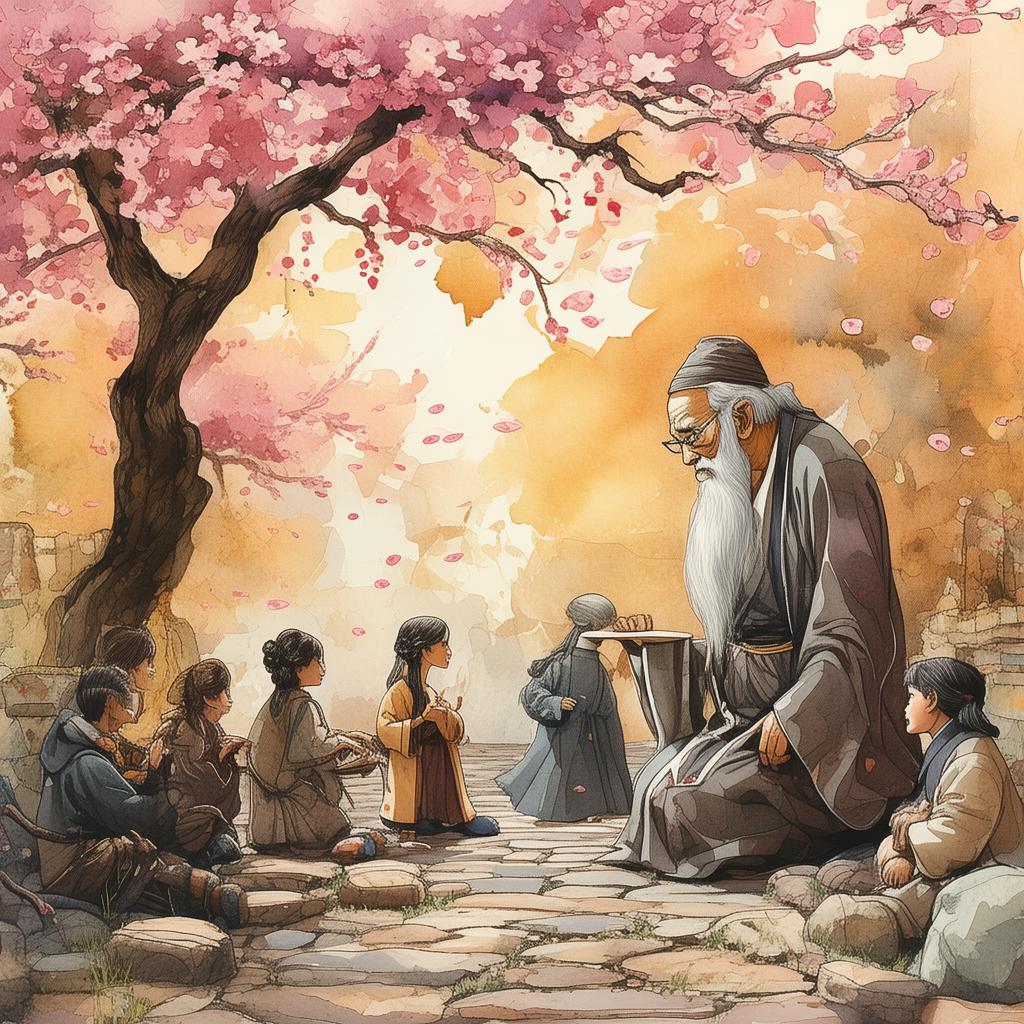
The Emperor, a man of great foresight, began to question the true nature of the edict's power. He sought counsel from the most revered scholars and sages of the land. They all agreed that the edict had indeed possessed mystical powers, but they were not of the benevolent kind.
Li Qing, who had become a figure of power and influence, felt the first tremors of guilt. He had believed the edict to be a source of good, but it was he who had misused its power. He had turned the tide of fortune not to bring happiness but to create an empire of shadows.
The Emperor, now enlightened, realized that the true mystical power of the edict was not in its ability to grant wealth and power but in its capacity to reveal the heart of a man. He issued another decree, one that would change the course of the Empire forever.
This time, the edict was simple yet profound. It stated that any official who sought to enrich themselves at the expense of the people would be stripped of their title and fortune. It was a decree that would restore the moral fiber of the Empire.
Li Qing, trembling with fear, approached the Emperor. "Your Majesty, I have sinned. I have misused the edict's power and brought darkness to the land. Please have mercy on me."
The Emperor, looking deeply into Li Qing's eyes, spoke with a voice that was both gentle and commanding. "Li Qing, you have learned the true nature of the edict's mystical powers. Power, like all things, must be wielded with wisdom and humility. Go forth and serve the people, not for wealth, but for the good of the Empire."
Li Qing, with a newfound sense of purpose, left the Forbidden City and wandered the Empire, helping those in need and seeking to make amends for his past mistakes. The Empire, once again, flourished under the light of the Emperor's rule and the example set by Li Qing.
And so, the tale of the Qing Emperor's edict spread far and wide, a lesson in the balance of power and the importance of wisdom. The edict, once a symbol of mystical prowess, now stood as a testament to the power of humility and the moral compass of a ruler.
In the end, the mystical powers of the edict were not in the ink and the seal but in the hearts of those who used it, for good or for ill. The Qing Emperor's edict was a reminder that the true magic lay not in the paper but in the character of the man who wielded it.
✨ Original Statement ✨
All articles published on this website (including but not limited to text, images, videos, and other content) are original or authorized for reposting and are protected by relevant laws. Without the explicit written permission of this website, no individual or organization may copy, modify, repost, or use the content for commercial purposes.
If you need to quote or cooperate, please contact this site for authorization. We reserve the right to pursue legal responsibility for any unauthorized use.
Hereby declared.
